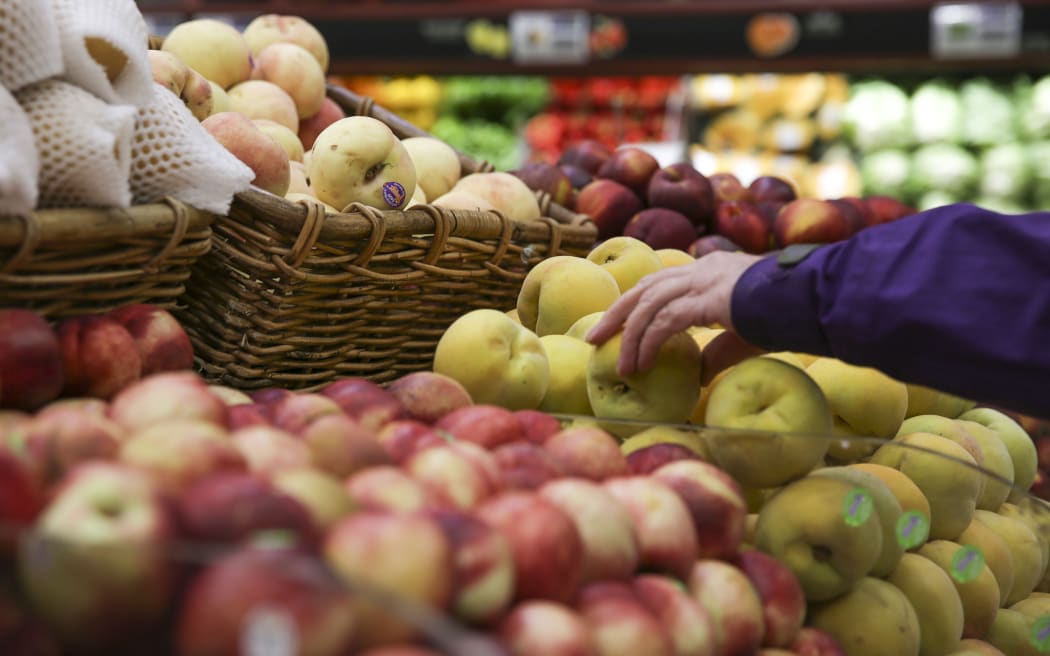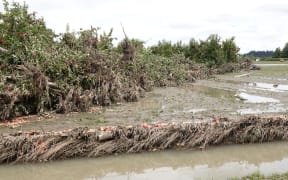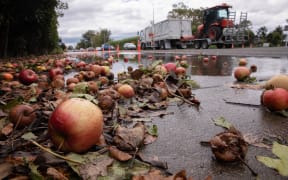
Photo: RNZ / Richard Tindiller
For the second year in a row New Zealand apple growers are unlikely to make money from sales in their traditional export markets of Europe and the UK.
Soaring on-orchard costs, high freight charges because of distance to market, coupled with an unwillingness by key European countries to pay more money, is making exporting apples there financially unsustainable.
AgFirst horticulture consultant Ross Wilson said it has always been a challenge being at the bottom of the world, it costs a lot of money to get products shipped to the export destinations.
"That cost in itself does make us a high cost producer," he said.
But now on top of that there are high on-orchard costs with fuel, fertiliser and wage rates all soaring.
"What we are finding is that a lot of our markets, particularly those markets in Europe, which are under real pressure themselves, they've got a war on their doorstep, they've also got huge inflation themselves. The supermarket buyers are just very reluctant to accept that the costs of growing this product have gone up, and that they need to pay more.
"We send fruit up to the likes of Europe on consignment, we don't really know what we're going to get for it. It's a consignment market. And it's very difficult at the moment for us to be able to convince these buyers that our costs have just inflated really significantly, and they need to pay more. So it's a real conundrum at the moment," he said.
He said AgFirst data is showing that New Zealand's cost of production has had a compound inflation rate of about 7 percent for the last three to four years.
"And to be a really successful trader we have got to be internationally cost competitive. We've heard governments talk about the need to control inflation. And we're living that absolutely at the moment because inflation for us is out of control. Our costs have risen to a point where we now have markets that are unwilling to pay our cost of production."
Wilson said to cope with being a high cost producer exporters have managed to compete by being the best, with the best varieties and superb quality.
He said that was no longer enough in Europe, so growers were pivoting to cope by pulling out trees like Pink Lady, Jazz and Braeburn, and only planting sweet, aromatic varieties preferred in Asian markets.
"We are competitive in some markets, the Asian countries are prepared to pay a margin where it makes sense," he said.




